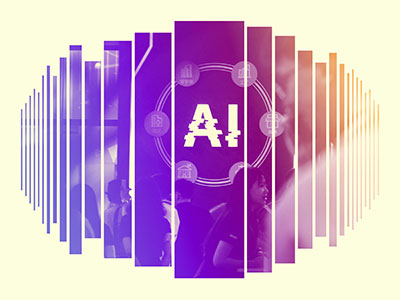|
|
|
Image by Naeblys/Adobe Stock
|
|
There are 58 million Americans ages 65 and older. Early detection of Alzheimer's disease and related dementias among this group is critical. Currently there is no cure, and available therapies are only effective for patients with early-stage disease.
This week, RAND published three new studies looking at key factors related to early detection and treatment of these illnesses. The authors examined who is most at risk for developing cognitive impairment, how to increase the uptake of cognitive testing among older adults, and how to encourage at-risk individuals to continue receiving care for brain health.
Here are some key takeaways:
- Low cognitive ability, functional limitations, and poor physical health are strong predictors of dementia as many as 20 years before its onset.
- Lifestyle factors, such as never drinking alcohol or drinking excessively, never exercising, and low engagement in hobbies, are associated with cognitive impairment and dementia.
- More people would take cognitive tests if they were free and readily accessible. (Currently, only about 16 percent of people ages 65 and older receive a cognitive assessment during routine visits with their primary care practitioner.)
- More patients would opt for treatments if they had fewer side effects and helped patients maintain their independence longer.
- Enabling primary care physicians to have greater involvement in care at the diagnosis and treatment stages would make the biggest difference in increasing the number of patients treated. This could also help decrease patients' wait time to see a specialist.
These and other findings have wide-ranging implications for decisionmakers—including health care providers, drug manufacturers, and policymakers—who are considering ways to better support patients with Alzheimer's and related dementias, their families, and their caregivers.
|
|
|
|
|
|
|
East Asian powers are becoming increasingly involved in Russia's war in Ukraine. The most dramatic example may be North Korea’s recent deployment of at least 10,000 soldiers to fight alongside Russia. But China, Japan, and South Korea are playing roles in the conflict as well. According to RAND's Jeffrey Hornung, Indo-Pacific nations are “supporting their respective partners on European soil in order to wage a much broader struggle over the future of the international order.” This dynamic adds an element of uncertainty and potential escalation to the conflict in Ukraine, he says. It also sets a new precedent for how Asian nations compete for their interests in other parts of the world. Read more »
|
|
|
|
Ten years ago, RAND released a report that provided the first detailed account of the challenges facing America's military and veteran caregivers—the emotional strain, the careers put on hold, the isolation. Earlier this year, we launched a follow-up study to understand where progress has been made and where greater support could improve caregivers' lives. The findings reveal that there are now more than 14 million military and veteran caregivers in the United States. And they are struggling. These “hidden heroes” need better access to mental health care, more financial support, and flexibility from their employers. Read more »
|
|
|
|
|
RAND Recommends
|
|
|
- A cease-fire between Israel and Hezbollah took effect last week. The agreement should be viewed as “an end to one theater of this war in the Middle East rather than the end of the overarching conflict,” says RAND's Raphael Cohen. “The Israel-Iran fight is still very much unresolved.”
- RAND Europe's Tom Ling weighs in on reforming the UK's National Health Service. “Whole-systems thinking” is required to address issues facing the NHS, he says.
- RAND just successfully completed the most ambitious fundraising campaign in its history. The Tomorrow Demands Today campaign raised $466 million to help expand the capacity of RAND and the Pardee RAND Graduate School to solve humanity's biggest problems.
|
|
|
|
|
Events
|
|
|
|
|
Thursday, December 5, 2024 – Online
|
|
|
Wednesday, December 11, 2024 – Online
|
|
|
Friday, December 13, 2024 – Online
|
|
|
|
|
|


